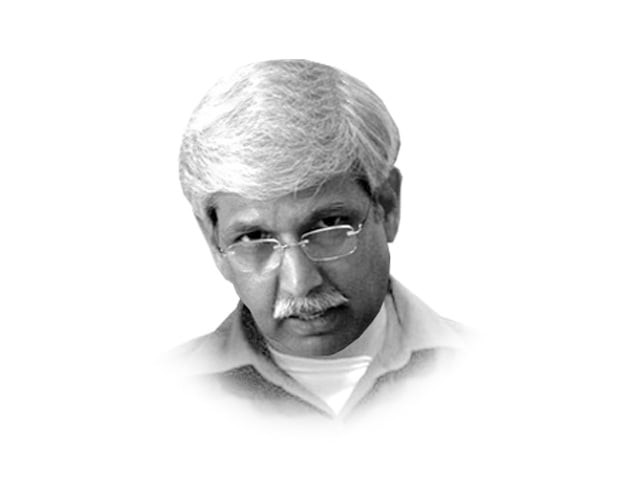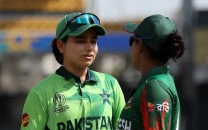In search of a Hazare
India is likely to gain from this internal convulsion while a diffused effort in Pakistan is likely to go to waste.

The world has moved on from deep ideological associations in the political or the economic sense and has gradually evolved towards a more pragmatic, global cosmopolitan culture. There is now a wider definition of an ‘international’ character in all things — political, economic, social, cuisine and even music. Every nation dons both an international and a national garb; that is how it remains entwined into a global culture. This is what makes each relevant to others. Combined ownership and shared stakes trigger complementary associations. Syria, Libya, Iran and North Korea have always existed beyond the global pale or on the fringes. As troubles ferment and become entrenched there, the world at large sits by seeing these entities unravel.
Pakistan must not see itself being categorised in such a league. Even sham associations with anachronistic ideological moorings are suspect in current times, and while America may seem to be an unyielding hegemon in this association, it will do us well to remember that nations such as China, India and Indonesia are happily becoming a part of the future world with newer anchoring of their own. Sovereignty has a newer meaning, which includes ensuring that no action of a nation endangers and pollutes this international society of nations. Along with association comes responsibility.
India is experiencing the pangs of such redefinition and re-examination of its former ways. To become an eligible player for the super-league, it must change itself. Anna Hazare leads such an internal effort to mend India’s ways. Establishments by design are status-quo and resistant to change. A political system, too, is dogmatic when it is established and acquires inertial attributes unyielding to any minor prods. This is where the Anna Hazares of the world and their mass movements become handy. In India, the political system is being challenged. Not only that, corruption as a trend — enriching the rich and impoverishing further the poor — needs to be stemmed with punitive laws, pushing the politicians to rise above the self to politics of service and duty, rather than use democracy only for electoral ends and a means to power and pelf.
Back to our own world: there has been an unintended picking from the uneasy détente that emerged from the diplomatic stand-off between India and Pakistan following the Mumbai incident. Both incapable of another physical stand-off, let alone a war or a skirmish, resorted to simmer, sulk and silence in that order. Silence they say is the trigger for dreams. With both, the other being out of focus of divine providence and vanquished physical capacity, space lent itself to introspection. What we gain are two parallel efforts in both countries; each society acting its role as per its inherent capacities. In India, we have a 74-year-old, feeble man, à la Gandhian mould, leading a popular anti-corruption movement against a corrupt political and business culture and within that challenging an unyielding political system. While in Pakistan, we only cry out the advent of a transformational moment but remain mired in introspective idealism. Our targets vary; to some it is a moment of redemption from an inexorably deviant military, to others it is the opportunity of lifetime to shun modernity and re-embrace religious idealism. The political system in Pakistan, steeped in patronage and exploitation, as much a reflection of the political tradition across the border. However, on the other hand it continues to remain eclipsed thanks to this societal divide and its diverse endeavour. India is likely to gain from this internal convulsion while a diffused effort in Pakistan is likely to go to waste, losing the historicity of an opportune moment without a mend of its structural decay. The question is, where lie dormant our Hazares?
For starters, Karachi beckons. Anyone?
Published in The Express Tribune, August 24th, 2011.


















COMMENTS
Comments are moderated and generally will be posted if they are on-topic and not abusive.
For more information, please see our Comments FAQ